Latest News
Karzai: Al-Qaeda had a legendary presence in Afghanistan
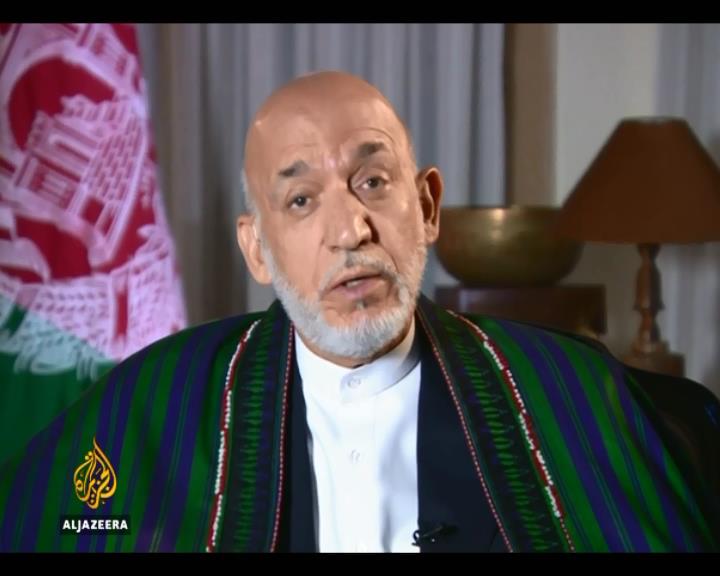
The outgoing president Hamid Karzai, says that Al Qaeda has never operated in Afghanistan, dismissing the notion that the terror group plotted the Sept. 11 terror attacks inside the country as “a myth,” and blaming Pakistani militias for the rise of the Islamic State inside Afghan borders.
On the eve of the anniversary of the 2001 attacks, Karzai, who left office last year after 12 years, used an interview with al Jazeera to express his doubt that the terrorist group led by the late Osama bin Laden was responsible for the operation which prompted the invasion of Afghanistan.
I don’t know if al-Qaeda existed and I don’t know if they exist,” said Karzai. “I have not seen them and I’ve not had any report about them, any report that would indicate that al-Qaeda is operating in Afghanistan.”
Asked whether he believed Osama bin Laden carried out the 9/11 attacks in New York and Washington DC and plotted them from Afghanistan, he responded: “That is what I have heard from our Western friends. That’s what the Western media says. There is no doubt that an operation, a terrorist operation was conducted in New York and in Washington.”
Asked again by Hasan if he believed the 9/11 attacks were the responsibility of al-Qaeda in Afghanistan, the former president responded: “I neither believe nor disbelieve something that I don’t know about. I can tell you that Afghanistan was as much a victim of terrorism as was America, as were the people who were killed in the September 11th terrorist attacks.”
Karzai, who had a poor relationship with successive leaders in Pakistan, also claimed in the interview that Islamic State fighters in Afghanistan are “definitely” members of “Pakistani militias”.
The former politician, who was the chosen candidate of the US to take over a new administration in the wake of the collapse of the Taliban regime in Afghanistan following the 2001 war, clashed repeatedly with Washington during his rule.
In recent months, Karzai has repeatedly been accused of attempting to undermine his successor, Ashraf Ghani, but in the interview, he ruled out an attempt to return to the Afghan presidency.
A daring and bloody operation involving US special forces and the CIA put Karzai back in Afghanistan in the last weeks of the 2001 war and then into power as a supposed consensus candidate.
As the Taliban regime crumbled, Karzai was seen as a the man of the hour. He was the head of a major tribe, of Pashtun ethnicity like around 40% of his compatriots, but moderate, educated and pro-western. Educated in India, with credentials as a “freedom fighter” during the war against the Soviets of the 1980s, he enthused officials in Washington, Kabul and London.
But Karzai quickly proved himself independent and contrarian, not hesitating to launch vitriolic attacks on his backers when they were responsible for civilian casualties during the bitter war against insurgents in the decade that followed or criticise broad western policies.
Officials from the US, the UK, Nato and the UN all repeatedly criticised Karzai for failing to crack down on rampant corruption and the booming narcotics trade in Afghanistan.

Latest News
Five dead, 24 injured in traffic accident in Samangan

The press office of Samangan Police Command says five people died and 24 others were injured in a traffic accident in Dara-e Suf Payeen district of the province.
Samangan Police Command said the incident took place on Thursday at 1:00am when a vehicle was traveling from Balkh province towards Dara-e Suf Payeen district.
Local officials stated that most of the injured were transferred to the Dara-e Suf Payeen district hospital, but three of them, who were in a serious condition, were taken to the Balkh Regional Hospital.
The cause of the accident was reportedly due to a technical problem with the vehicle.
Latest News
UNAMA issues latest rights report, notes ongoing challenges for women, girls and media
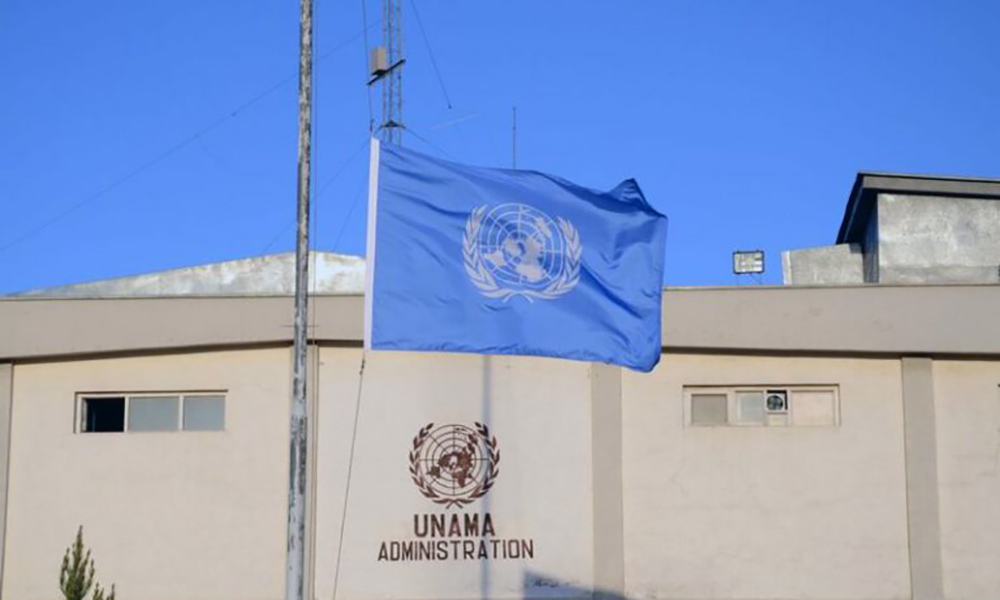
The Special Rapporteur on the human rights situation in Afghanistan, Richard Bennett, urged the United Nations Human Rights Council to keep Afghanistan and its people at the forefront of its agenda.
“It is important to hold the Taliban (Islamic Emirate) to account for their policies and actions,” he told the UN rights body this week.
Bennett’s account coincided with the UN mission in Afghanistan’s (UNAMA) latest report on the human rights situation – covering the period from January to March 2024.
In its report, UNAMA said that while the new school year in Afghanistan commenced in April, it did so without the presence of Afghan girls in high schools.
The report also stated that an invitation to attend a ceremony in Kabul marking the commencement of the new academic year, issued to media by the Ministry of Education, specifically instructed women journalists not to attend, citing a “lack of proper place[s]” for women.
UNAMA did however point out that while they still received reports of the enforcement of the hijab instruction,such incidents significantly decreased after January 2024 with the cessation of the large-scale enforcement actions which took place between December 2023 and January 2024.
On the issue of freedom of media, UNAMA said the situation for journalists was “mixed”.
“Some journalists have reported an improvement in access to information with the appointment of spokespersons for de facto line departments at provincial level and the establishment of WhatsApp groups by some de facto entities to distribute information.”
However, journalists and media workers continue to operate in a challenging environment, with the media facing significant financial challenges, in addition to a range of restrictions imposed by the Islamic Emirate and the risk of arbitrary detentions.
Between January and March, at least four journalists were arrested, including one from Japan’s Kyodo news agency. All have since been released.
UNAMA stated however that threats to former government officials and former ANDSF members, including arbitrary arrest and detention, torture and ill-treatment and extrajudicial killings, continue to be reported to UNAMA Human Rights, despite the general amnesty announced by the Islamic Emirate.
On the death penalty and corporal punishment, UNAMA reported that the Islamic Emirate carried out three public executions of individuals sentenced to the death penalty.
“In all three instances, the de facto authorities stated that the death penalty was implemented in accordance with a sentence upheld by three de facto Courts (District, Appeal and Supreme) and approval by the Taliban leader,” the report read.
In response to the UNAMA report, Zabihullah Mujahid, spokesman of the Islamic Emirate, said that no one’s rights have been lost in Afghanistan, but Sharia rights of men and women in Afghanistan are secured and people have access to their rights more so now than before.
Mujahid called the UNAMA report baseless and said the report was not accurate.
Regarding the arrests of former government officials, Mujahid says no one has been arrested and there are no documents in this regard.
“In general, UNAMA’s reports are always full of propaganda and are meant to destroy public minds, and they do not have any documents to prove their claims,” added Mujahid.
Latest News
Neglecting climate change in Afghanistan will be catastrophic: IEA
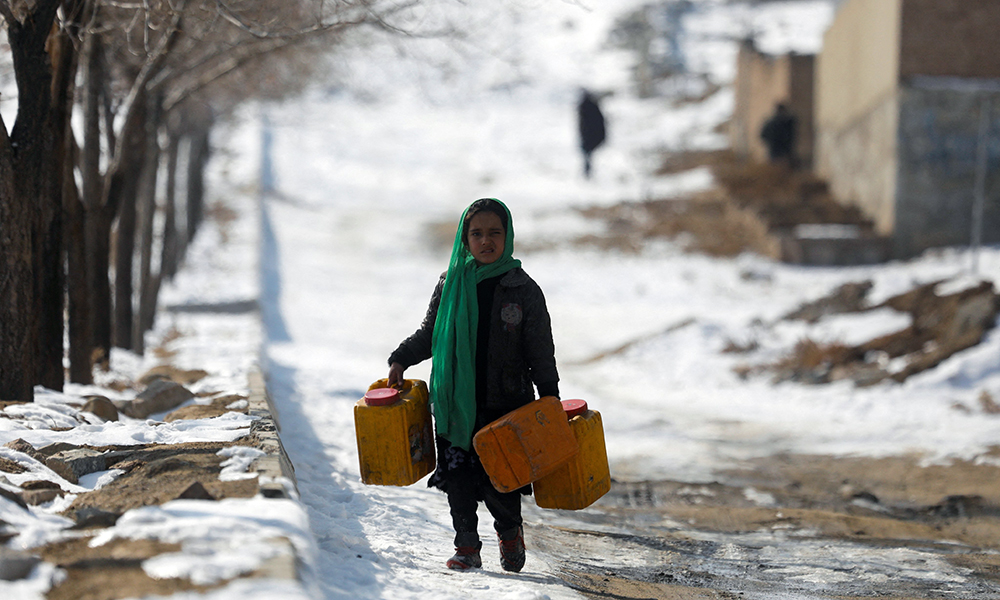
Afghanistan stands among the nations that continue to face devastating consequences of climate change, but despite this the country has had to endure blatant injustice on the part of the international community regarding this critical issue.
After the return to power of the Islamic Emirate, the international community not only imposed various sanctions, but approached the issue of climate change in Afghanistan from a political perspective.
Consequently, with the suspension of 32 environmental and climate change projects, restricting Afghanistan’s access to pledged financial resources, and the exclusion of Afghanistan from regional and international meetings and conferences on environmental and climate issues, there has been blatant injustice against the people of Afghanistan.
In an article published by the Islamic Emirate’s official al Emarah on Thursday, the Islamic Emirate stated that as the Earth’s temperature continues to rise, climate change poses a threat to all facets of human existence.
Pointing out that countries lacking in resources, including Afghanistan, face heightened vulnerability to the perils of climate change, as they lack the requisite means and infrastructure to effectively mitigate and manage its effects.
According to information from Afghanistan’s National Environmental Protection Agency (NEPA), temperatures in the southern regions of the country have increased by 2.4 degrees Celsius over the past century, Hindu Kush regions by 1 degree Celsius, central and northern highlands by 1.6 to 1.7 degrees Celsius, and eastern regions of Afghanistan by 0.6 degrees Celsius.
This has created numerous problems in urban and rural areas of Afghanistan, including increased poverty, migration, recurring droughts, floods, rising temperatures, destruction of farms and forests, food shortages, livestock deaths, and the emergence of various diseases.
“These can be identified as the undesirable consequences and impacts of climate change in Afghanistan,” the report read.
The continuation of this situation has severely affected not only the water, agriculture, livestock, forests, and grasslands sectors but also significantly impacted the social and economic lives of the people of Afghanistan, as well as health, energy, biodiversity, and ecosystems, al Emarah reported.
Despite the challenges and existing problems, officials at NEPA have made necessary efforts to manage the issue of climate change in Afghanistan utilizing available resources. Over the past three years, practical steps have been taken regarding drafting, revising, and amending laws, policies, regulations, and work plans, as well as project design.
Revision of environmental laws, national environmental policy, regulations on ozone-depleting substances, approval of the KIGALI Amendment to the Montreal Protocol 2020, and other related documents can be highlighted as prominent actions in the field of climate change mitigation.
Other steps have also been taken, including the prioritization of climate-compatible water and watershed projects, the restoration of degraded ecosystems, sustainable management plans for Nuristan National Park, sustainable forest and land management projects, and combating land degradation and biodiversity loss through enhancing sustainable food systems in Afghanistan.
The Islamic Emirate, under its environmental protection policy for Afghanistan, has placed climate change management at the forefront of its work priorities and has initiated efforts to mitigate the situation with the resources at hand.
With ensuring security nationwide, the Islamic Emirate has provided a conducive environment for implementing projects in various sectors across Afghanistan.
As climate change is an overarching issue, tackling the challenges and risks it poses requires joint efforts from all governments and collaboration among all stakeholders.
In light of this, the international community, nations, and pertinent organizations ought to prioritize environmental and climate change matters in Afghanistan. They should take practical and genuine steps by resuming suspended environmental and climate change projects, facilitating access to pledged financial resources, and creating opportunities for active Afghan participation in regional and international forums and conferences, al Emarah reported.
“Moreover, throughout this period, the people of Afghanistan have been directly impacted by the consequences of climate change, enduring significant financial and human losses.
“Therefore, the global community and pertinent organizations must extricate the environmental issue and climate change in Afghanistan from political spheres, conceiving it instead as a human dilemma,” the report read.
-

 Sport5 days ago
Sport5 days agoAfghanistan qualify for FIFA Futsal World Cup for first time ever
-

 Sport2 days ago
Sport2 days agoAfghanistan announce T20 World Cup 2024 squad
-
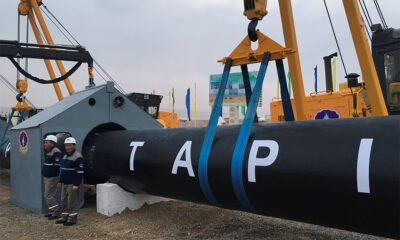
 Latest News5 days ago
Latest News5 days agoTurkmenistan committed to complete TAPI energy project
-

 Sport4 days ago
Sport4 days agoKohli slams strike-rate talk and pundits ‘from the box’
-
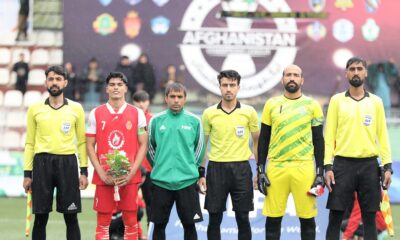
 Sport5 days ago
Sport5 days agoACL: Mawj Sahil 2-1 Sarsabz Yashlar; Sorkh Poshan 6-0 Maiwand
-
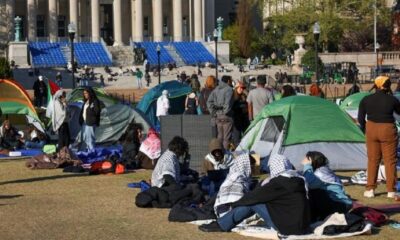
 World5 days ago
World5 days agoPolice arrest scores of pro-Palestinian protesters on US university campuses
-
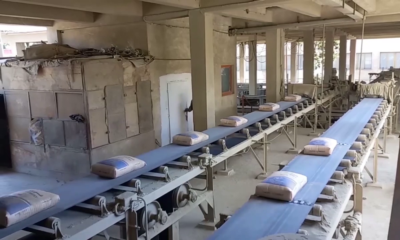
 Latest News5 days ago
Latest News5 days agoGhori State Cement in Baghlan increases production
-
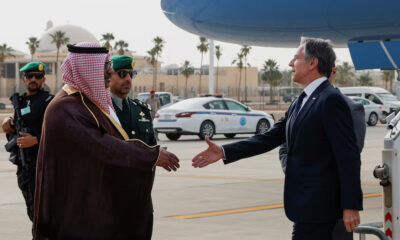
 World4 days ago
World4 days agoBlinken arrives in Saudi Arabia to discuss Israel normalization, post-war Gaza

![KARZAI 11-09-2015 DARI - SOT.avi_snapshot_00.36_[2015.09.11_17.40.13]](http://ariananews.af/wp-content/uploads/2015/09/KARZAI-11-09-2015-DARI-SOT.avi_snapshot_00.36_2015.09.11_17.40.13-300x240.jpg)













